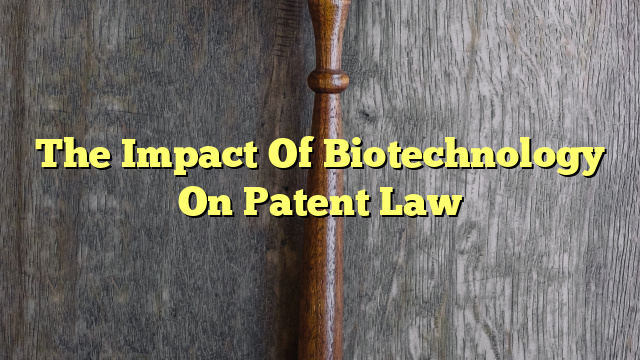Biotechnology is a rapidly growing field with many applications. Its impact on patent law, however, is not always fully appreciated. In this article, we will explore what biotechnology is in the patent context, how it relates to patent law, the importance of biotechnology patents and how patent law can protect biotechnology processes and products.
What is Biotechnology in Patent Law?
Biotechnology is defined as “the application of science and engineering to the processing of materials by biological agents to provide goods and services”. It has become an important and rapidly growing field with many applications, from agriculture and food production to medical and pharmaceutical research. As a result of its vast potential, biotechnology has become the subject of numerous patents. Patent law thus provides a legal framework for the protection of biotechnology inventions.
The Relationship between Patents and Biotechnology
Patents are a form of intellectual property that grant an inventor the exclusive right to exploit their invention for a certain period of time. In order for an invention to be eligible for patent protection, it must meet certain criteria, such as being novel, useful, and non-obvious. In the biotechnology context, there are additional considerations to take into account. For example, patents can be granted for genetic materials, such as genes and proteins, as well as for processes and products produced using biotechnology. As a result, biotechnology patents cover a wide range of inventions, from genetically modified organisms to drug therapies.
The Importance of Biotechnology Patents
The importance of biotechnology patents lies in the potential of biotechnology to revolutionize many aspects of modern life. Biotechnology can be used to create new medicines and treatments, develop new forms of energy, and create new materials. Biotechnology patents are thus essential for protecting the rights of inventors and encouraging innovation in the field by providing them with monopolies on their inventions. Without patent protection, inventors would have no incentive to invest their time and resources in the development of new biotechnological advancements.
Can Patent Law Protect Biotechnology Processes and Products?
Yes, patent law can provide protection for biotechnology processes and products. In order to be eligible for patent protection, biotechnological inventions must meet the standard criteria for patentability, such as being novel, useful, and non-obvious. Additionally, biotechnology processes and products must be described in detail in the patent application in order for the patent to be valid. The patent must also clearly define the scope of the invention and provide sufficient disclosure of the invention to enable others to make and use it.
Conclusion
Biotechnology is a rapidly growing field with many potential applications. Patent law provides a legal framework for the protection of biotechnology inventions by granting inventors exclusive rights over their inventions. Biotechnology patents are important for protecting inventors’ rights and encouraging innovation in the field. Patent law can provide protection for biotechnology processes and products, provided that the patent meets the criteria for patentability and provides sufficient disclosure of the invention.


Biotechnology has undoubtedly posed new challenges for patent law, however I believe it has also created new opportunities. For instance, the ability to patent gene sequences and laboratory-grown organisms has opened up new avenues for biotechnology research. Similarly, new technologies like CRISPR have shown potential to revolutionize the field.